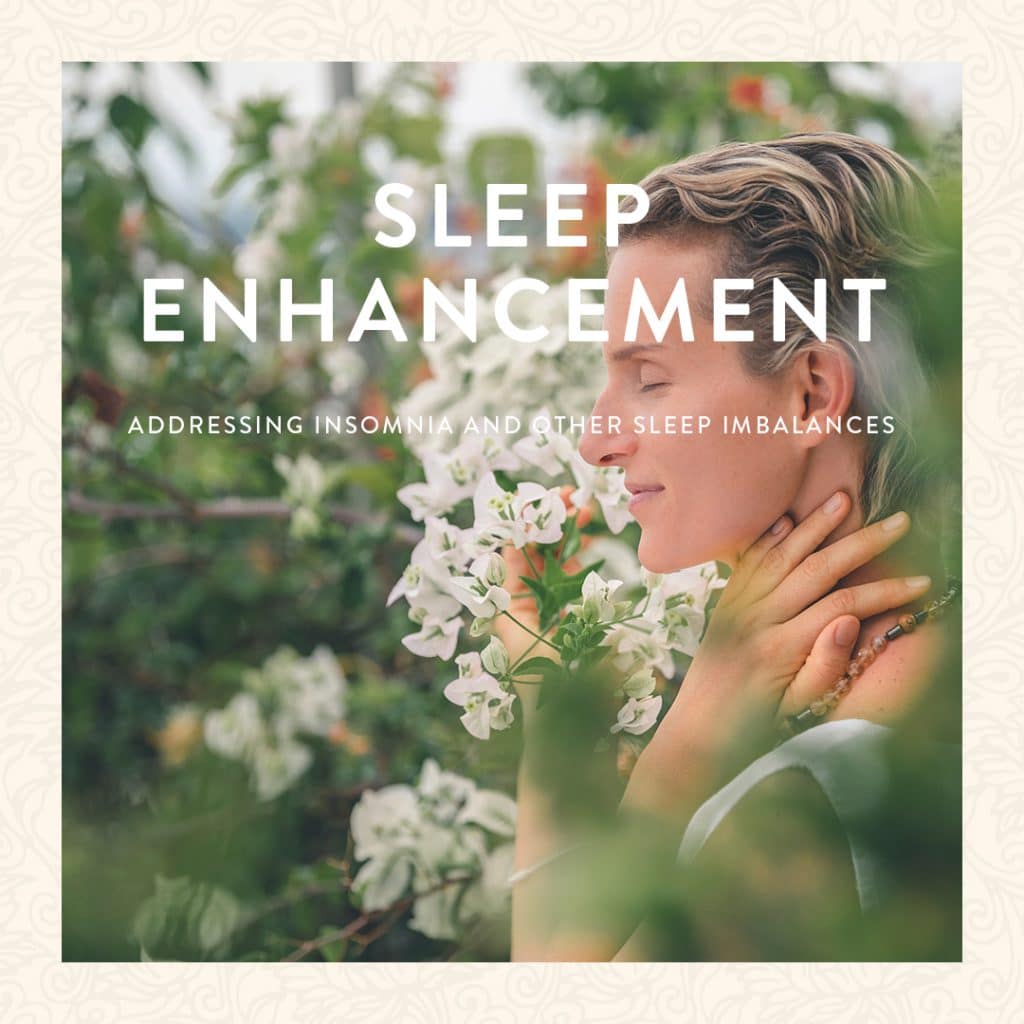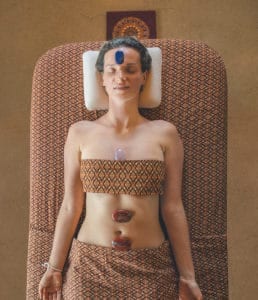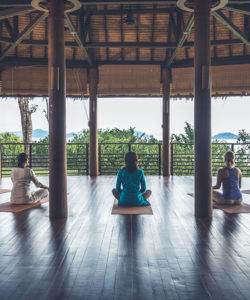HOW ANXIETY & DEPRESSION AFFECT SLEEP
Anxiety, depression and impaired sleep are all afflictions that can severely impact our quality of life. Symptoms arising from these conditions were already on the rise with the increased pace and pressures of the modern world. However, the COVID-19 pandemic and subsequent restrictions have caused a further escalation, leading to a significant increase in the number of people reporting symptoms of anxiety, depression and sleep disturbances.
Anxiety can be understood as a psychological state of worry and intrusive, recurring concerns, with physical manifestations of muscular tension and increased blood pressure. Depression can vary from mild to severe and is characterised by persistent low mood and a lack of finding meaning, accompanied by a physical manifestation of tiredness and heaviness. Sleep deprivation is defined as consistently getting 7 hours of sleep or less.
Many of us understand from personal experience that poor sleep negatively impacts mood and that a state of stress and worry can negatively impact our sleep – here, we will look at this connection in greater detail.
A Bidirectional Relationship
The first thing to note is that the link is bidirectional, meaning it works both ways – sleep impacts mood, and mood impacts sleep. This is problematic as once one area becomes affected, it is easy to find ourselves in a negative cycle that can become detrimental to our overall health and wellbeing.
The Cortisol Connection
Though anxiety and depression are distinct, they are both characterised by an overactive stress response. When we perceive a threat, our sympathetic nervous system and amygdala (or ‘lizard brain’) are activated as we go into a ‘fight, flight or freeze’ response. Evolutionarily, this response has protected us from danger and kept us alive. Unfortunately, the nervous system cannot distinguish between real, imminent danger and non-life-threatening stressors such as being late to a meeting or even imagined troubling future scenarios, such as those that characterise anxiety. Therefore, a response that was designed to be short-lived becomes prolonged, the sympathetic nervous system and amygdala are chronically over-active, and the adrenal glands secrete higher levels of cortisol.
Circadian Rhythm
Cortisol is intimately linked with our circadian rhythm – the ‘internal clock’ that governs our sleep/wake cycle. To support sleep, cortisol should be highest in the morning and gradually decline throughout the day. However, if cortisol levels are frequently stimulated throughout the day, this rhythm is disturbed, the body will remain in a high state of alert, and sleep will be impaired. Suppose elevated levels of cortisol become the norm. In that case, the ‘cortisol curve’ will eventually shift, and it is common to feel fatigued in the morning upon waking and more alert late at night.
How Lifestyle Can Increase Stress
Anxiety and depression are both associated with higher levels of cortisol. However, certain lifestyle habits can disrupt a healthy ‘cortisol curve’ even further, such as:
- Caffeine intake
- Alcohol intake
- Late-night meetings
- Watching distressing images such as the news or violent films
- Intense exercise in the evening
- Relationship stress / arguments
- Overthinking or excessive worrying
Two Sleep Habits of the Anxious and Depressed
There are two main ways this stress pattern affects our sleep.
- It encourages us to deprioritise sleep
- Our ability to sleep is disrupted even if we allow sufficient time or ‘sleep opportunity’.
Overstimulation
When we are anxious, our mind tends to be racing. We reach for our omnipresent screens; TVs, computers, and phones stimulate our eyes with light and fill our tired minds with even more information. Many of us, when anxious, find ourselves scrolling late into the night.
However, if a person suffering from anxiety or depression does choose to turn off these devices and try to sleep, they may still end up being a victim of the overactive nervous system. The cortisol in the blood makes the brain more vigilant, and racing thoughts or even physical hypersensitivity can keep us awake. When this picture of delayed sleep onset despite adequate sleep opportunity has persisted for six or more weeks, it is common for a diagnosis of insomnia to be made.
A Vicious Circle
A lack of sleep for just one night has been shown to create increased activation of the amygdala, the part of the brain responsible for initiating the ‘fight, flight or freeze’ response. This makes us more susceptible to stress, more aggressive and more likely to snap at those around us. The striatum, situated above the amygdala, also shows increased activation. This part of the brain governs impulsivity and reward, being associated with dopamine.
We also see a downgrading of activity in the pre-frontal cortex, the part of the brain more associated with rational decision making or the ‘brake’ on our impulsivity. As a combination, these changes in the brain give rise to mood swings, make us hypersensitive to pleasure and more inclined for risk-taking. This affects the health of our relationships and creates situations where stress levels will escalate, making it more difficult for us to make health-supporting choices.
Poor choices, such as reaching for foods high in refined sugar or stimulants such as caffeine, can exacerbate anxiety and low mood – illustrating how quickly we can fall into a negative cycle.
The Road to Recovery
By identifying the stressors in our life, we can then begin to remove some and respond differently to others. We can also learn techniques such as Pranayama and meditation to activate the calming branch of our nervous system (the parasympathetic nervous system) to interrupt the stress cycle, reducing the symptoms of anxiety and depression.
Whether you are suffering from anxiety, depression, sleep disturbances or any combination of the three, it is essential to seek professional help. At Kamalaya, we promote a holistic approach, focusing on all aspects of health; mental, emotional, physical and spiritual. We also consider your relational health, lifestyle patterns and the influence of your living and working environments. Our Comprehensive Balance & Revitalise Program is designed to address the symptoms and underlying causes of a high-stress lifestyle, nourishing the body back to health empowering the individual with tools to maintain balance within challenging circumstances.
Read more about Comprehensive Balance & Revitalise and our range of results-based Stress and Burnout programs here.

Written by: Kate Upton, Naturopath at Kamalaya Koh Samui
on Kamalaya Connect
These sessions provide an opportunity to discuss any wellness concerns, as well as review your health goals, medical conditions and reports in complete confidence.
US$ 94
45 minutes
SLEEP ENHANCEMENT
WELLNESS PROGRAM
at Kamalaya Koh Samui
Explore your personal mental and emotional barriers to sleep and the practical tools to overcome them.
Choose from 7 or 9 days



















